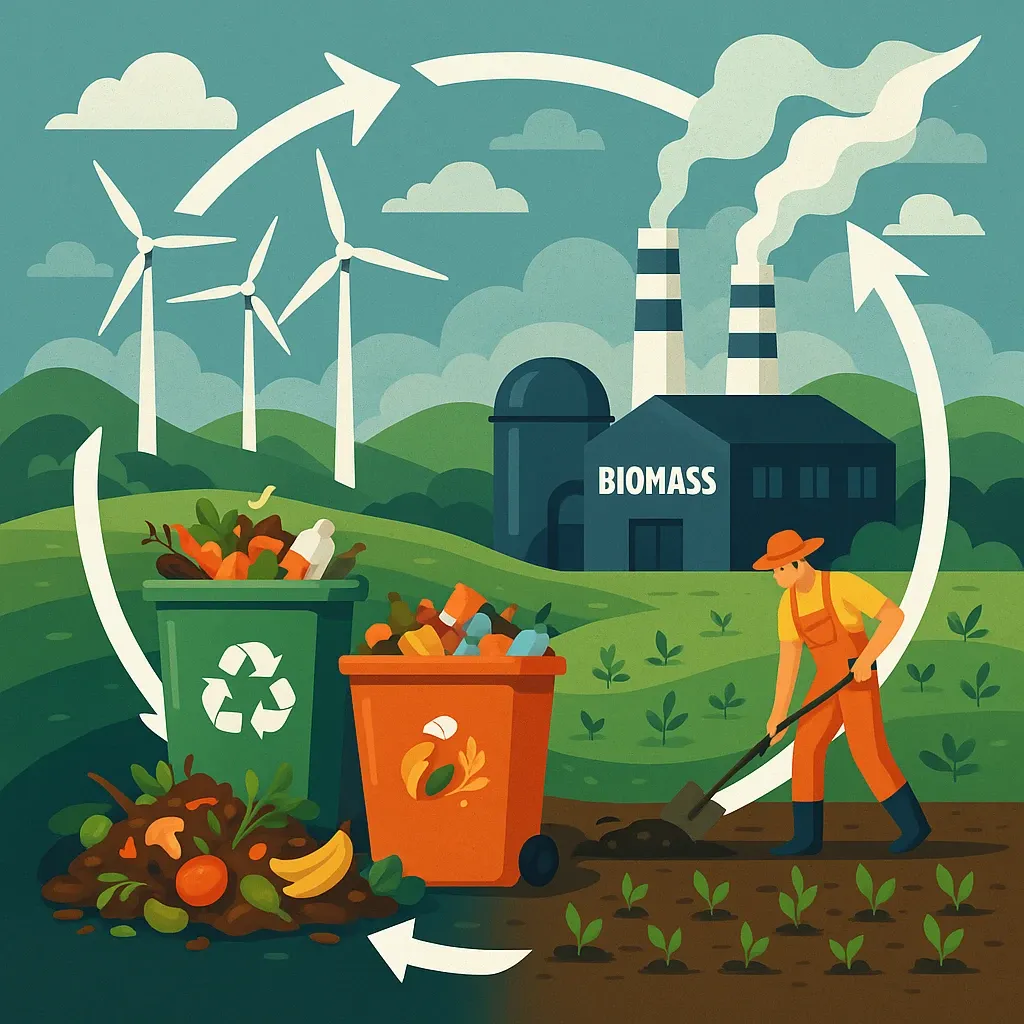+90 224 504 28 12 (TR)
Üçevler Mahallesi İzmir Yolu Cadde No:241/C Blok Westpoint D:32 Nilüfer, Bursa, 16120

The CirculaWASTE project, officially titled “Use of Urban Solid Wastes and Organic Wastes in Agriculture for Transition to Circular Economy,” was designed to address the pressing challenges posed by increasing energy demands, waste disposal, and greenhouse gas emissions in Europe. With biomass energy emerging as a viable solution, especially in rural and Eastern EU regions, the project aimed to foster innovation in agricultural and municipal waste management. The initiative drew inspiration and best practices from previous EU projects (DESUWOW, WASTRE, RUBIGAS) and aligned with key European policies, such as the Renewable Energy Directive and the Energy Roadmap 2050, to promote sustainable development and circular economy principles.
PROJECT PROGRAMME
CirculaWASTE was implemented under the Erasmus+ KA210-VET programme, specifically Small-scale Partnerships in Vocational Education and Training. The project ran for 18 months, starting in May 2022 and concluding in November 2023, with the support of the Romanian National Agency. It brought together partners from Romania, Türkiye, Belgium, and Spain and operated on a total budget of €60,000.
PROJECT AIM
The primary aim of the project was to develop innovative training methodologies to equip vocational education and training (VET) professionals with the necessary skills to foster the adoption of biomass energy solutions from agricultural and municipal waste. The project promoted entrepreneurship, supported the creation of green jobs, and contributed to environmental sustainability, with a particular focus on improving rural livelihoods and reducing migration from rural to urban areas.
PROJECT OBJECTIVES
The objectives of CirculaWASTE included training 96 VET trainers across the partner countries, creating a comprehensive Training Manual for VET trainers, developing new professional skills related to biomass energy, promoting awareness of the EU’s renewable energy targets, and fostering the transfer of innovations in waste management. Additionally, the project aimed to strengthen the quality of life in rural regions by promoting circular economy practices and supporting the transition to climate-friendly agricultural systems.
PROJECT TARGET GROUP
The main target group of the project was VET trainers who work with diverse stakeholders such as farmers, municipal companies, waste treatment firms, environmental organizations, rural development agents, engineers, biomass energy suppliers, and other professionals in the field of waste management and renewable energy. In total, 96 VET trainers (24 per country) directly participated in the training activities, with wider dissemination efforts reaching additional trainers and professionals across Europe.
PROJECT ACTIVITIES
CirculaWASTE conducted a series of four international training workshops (Train-the-Trainer events), each hosted by a different project partner: in Romania focusing on Human Waste/Food Waste, in Belgium on Energy Crops, in Spain on Agricultural Wastes, and in Türkiye on Municipal Solid Waste (MSW). Each workshop produced a specialized training module, which was compiled into the final Training Manual for VET trainers. The project also included strong dissemination and visibility efforts, involving the creation of a project website, newsletters, press releases, and outreach to relevant stakeholders in the field of circular economy and renewable energy.